Hungry Ghosts roam the Streets of George Town
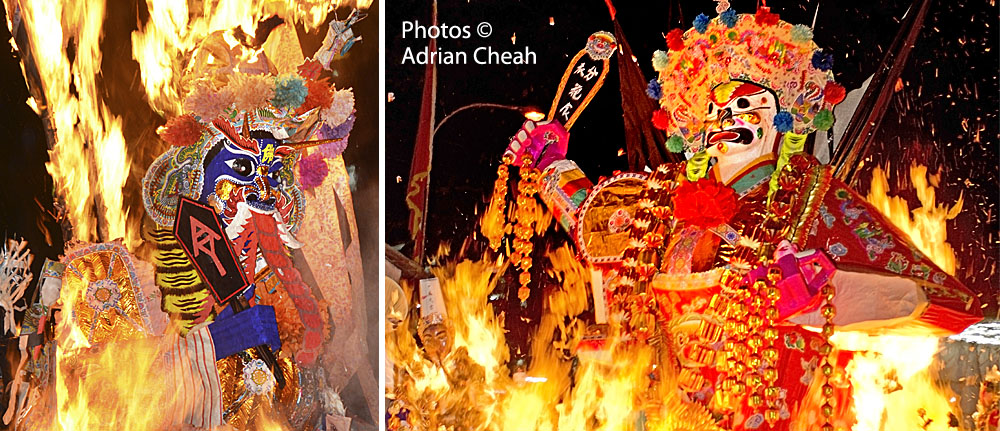
Every year, the streets of George Town in Penang come alive, not just with the living but with the hungry ghosts of the underworld. This is no ordinary celebration. The Hungry Ghost Festival, or Phor Thor as it is locally known, is a month-long festivities observed by Chinese communities not only in Penang but also throughout Malaysia, Singapore and Phuket.


According to Chinese folklore, on the first day of the seventh lunar month, the gates of hell are flung open, releasing spirits to roam the earth freely. Yes, it is a supernatural jailbreak! These spirits, starved for both comfort and food, wander among the living, with some even popping by to visit their descendants. Imagine a family reunion where your ancestors literally come back from the dead for a bite to eat.

It is no surprise that many of these spirits are drawn to Penang, renowned as one of the world's top food havens. Who would not want to snack on some char koay teow or sio bak (Chinese roast pork) after an eternity in the underworld? The festival transforms Penang into a grand stage, ritualising connections between the living and the dead, the earthly and the infernal, and the physical and the spiritual.

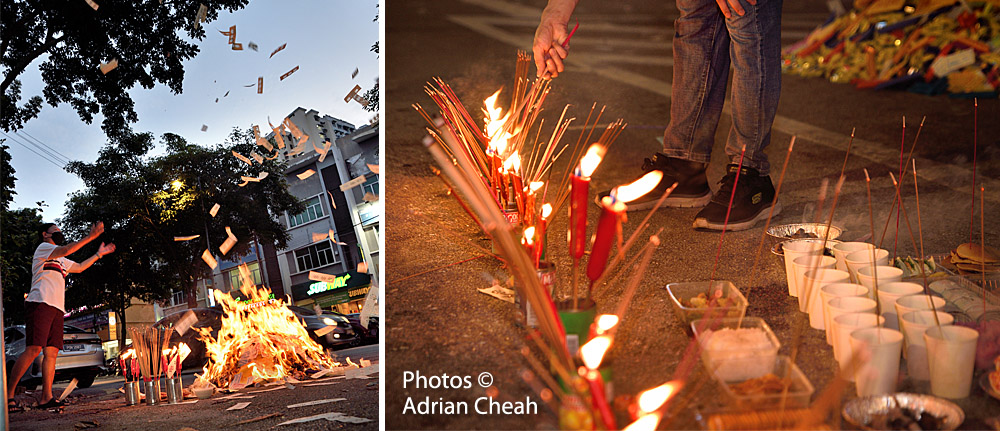
For the older generation, this practice is vital, honouring the roots of their forefathers who ventured to the malaria-endemic Malaya archipelago to clear jungles for tin, rubber and spices. They faced immense hardships with low survival rates, succumbing to malaria, beri-beri or poverty, with some squandering their wages on fleeting relief in alcohol, opium or gambling. Knowing many would die alone, they pledged to care for each other in death, ensuring proper burials and making offerings. This commitment formed the basis of clan associations, binding descendants to honour these "good brothers" (ho sio tee), who died without kin. Today, during the seventh lunar month, their descendants offer tributes to nameless "hungry ghosts" along the streets of George Town, recalling the camaraderie forged by their forefathers. This tradition is not superstition; it embodies respect, gratitude and honour for those whose sacrifices enabled the comfort of the present generation.

But beware, these spirits are not just here for the food. Spirits that were not given proper burials, banished to the underworld or whose descendants failed to pay proper tribute, can return seeking comfort, closure or even revenge. Penang’s streets become a vibrant stage for this otherworldly drama. Colourful offerings, towering papier-mâché effigies, and elaborate altars laden with food and incense fill the city. Opera performances and puppet shows entertain both the living and the dead, adding a touch of theatrics to the festival. The spirits, fickle as they are, bless or curse based on how they were treated, so it is wise to keep them well-fed and happy.

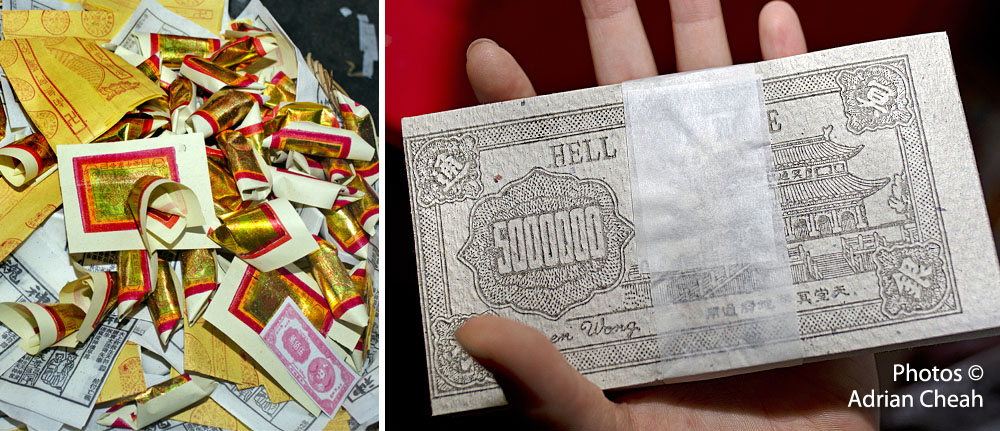
Prayers, incense, food and the burning of "hell bank" notes are standard fare. Add in paper effigies and other worldly possessions – houses, cars, televisions, even the latest smartphones – and you have a ghostly gift registry. Imagine tossing Richard Dawkins’ "The God Delusion" into the bonfire. That would make for an interesting read on the other side!

For some families, a grand feast is prepared especially for departed ancestors making a "return home" visit. These rituals, steeped in tradition, are believed to help the departed pass through the 18 courts of hell, where their souls face judgment and punishment before they can be reborn. It is a spiritual pit stop on the way to the next life.


Armed with the conviction that appeasing the spirits will bring them good fortune, private enterprises and businessmen frequently join in the festivities, supporting the staging of Chinese street operas and puppet theatres throughout George Town. These performances are not only intended for the entertainment of the spirits but for the public as well. So come join the festivities and catch a story or two of the live entertainment. With distinct and often garish makeup, donning elaborate sequined costumes, Chinese opera performers entertain their spectators in front of hand-painted backdrops, raised above the ground on makeshift stages. Remember to leave the first row empty as it is meant to accommodate the spirits.

The month of the Hungry Ghost Festival is not the best time for significant life events. Weddings, moving to a new home, or heaven forbid, dying, are considered taboo. Devout believers avoid travelling, buying property, or closing business deals. It might sound extreme, but it is a perfect excuse to consolidate plans and take things easy. Children are warned to stay indoors after dark to avoid being lured by spirits to the kingdom of the dead. Swimming is a big no-no – hungry ghosts might drag them under, looking for a soul to take their place in hell! With the advent of technology and the information age, some of today's children find such tall tales difficult to swallow.
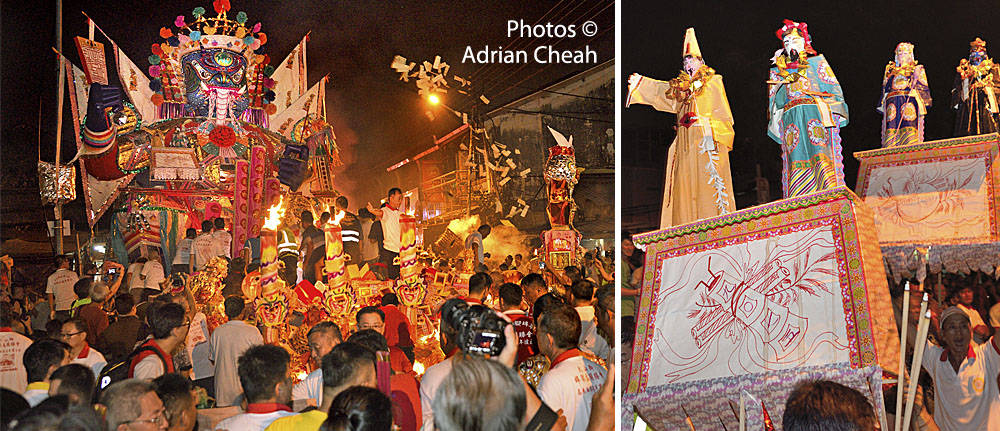

Look closely and you might notice a small image of the Goddess of Mercy on the elaborate headdress of the King of Hell. Legend has it that the King of Hell is actually Guan Yin, embodying both benevolence and fierceness to keep restless spirits in check during the seventh month.
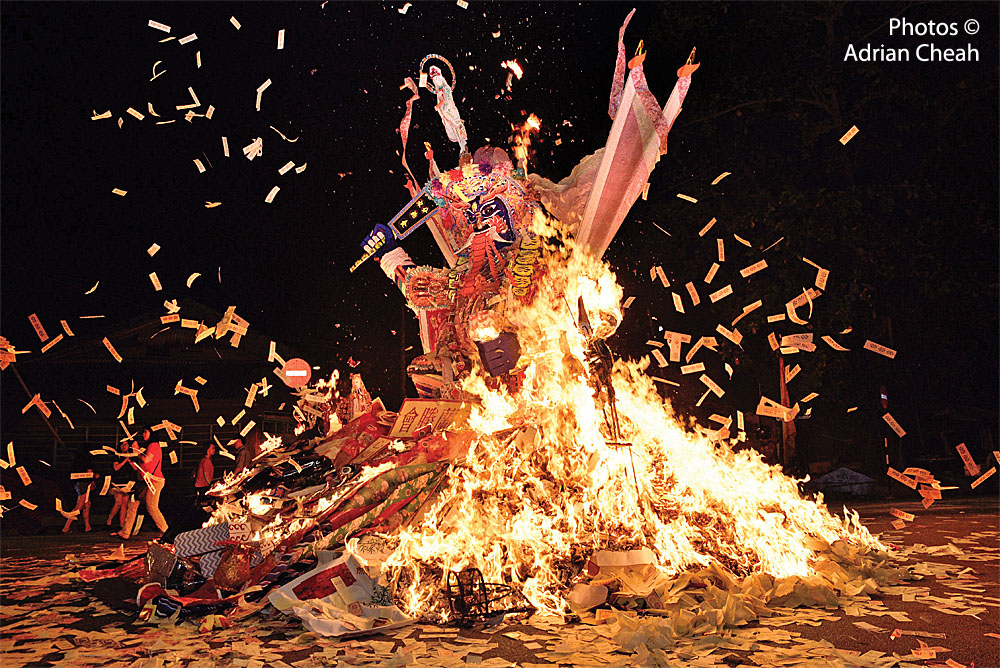
The grand finale on the 30th day of the seventh moon is a sight to behold. At midnight, the ghosts return to Hades, and the gates slam shut behind them. More “hell bank” notes, paper deities and other faux paper ingots are set ablaze in a giant bonfire as a final send-off. With a collective sigh of relief, communities, especially the Taoists, resume their daily lives, confident that they have fulfilled their duties to their ancestors.
---------------------------------------------------------
Written and photographed by Adrian Cheah
© All Rights Reserved
Updated 3 August 2024